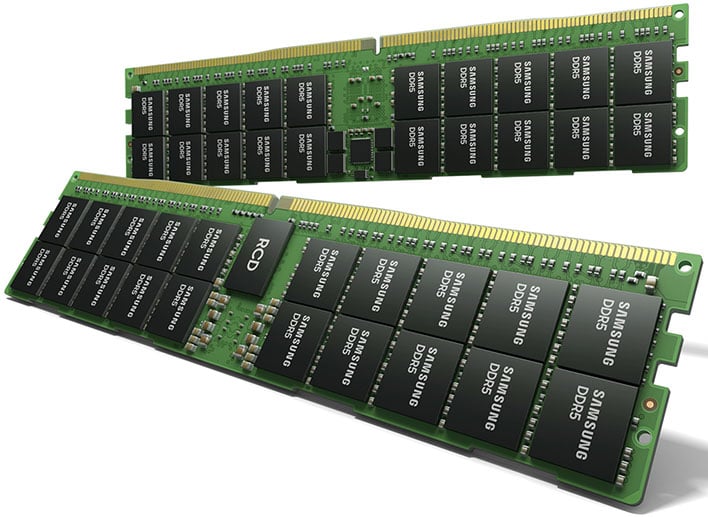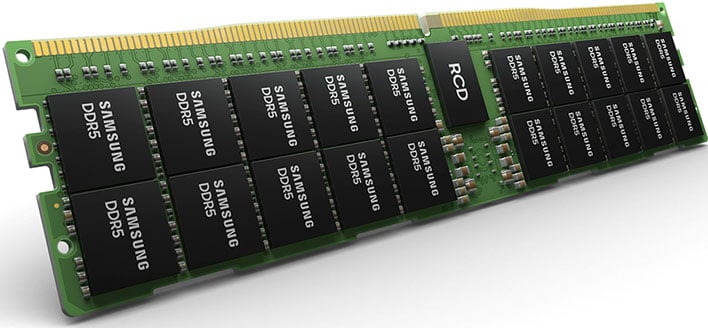Samsung Announces 512GB DDR5 Memory That Is Twice As Fast As DDR4
As we inch closer to Intel's Alder Lake and AMD's Zen 4 architectures (late this year and/or early next, barring any delays), memory makers have started announcing advances in DDR5 memory, which will deliver a big increase in bandwidth. We've even seen some DDR5 module launches. Samsung, however, has managed to separate itself from the pack on announcing what it says is the industry's first 512GB memory module based on high-k metal gate (HKMG) process technology.
You may have heard of HKMG before, as it has been around for a long time—Intel first leveraged HKMG transistors in 2007 with its 45-nanometer logic technology (Penryn), which combined a hafnium-based dialectic layer (rather than silicon dioxide) with a gate electrode made of new metals to combat gate leakage, a phenomenon that occurs through a process called quantum mechanical tunneling.
HKMG has traditionally been used in semiconductor design (Samsung also adopted it in its GDDR6 memory in 2018), but as DRAM structures have continued to scale down, the insulation layer has thinned, resulting in a higher leakage current. So, Samsung replaced the insulator with HKMG material. In doing so, the company says it has been able to reduce leakage and achieve a new level of DDR5 performance, while consuming 13 percent less power—a boon for data centers where every little bit of power savings matter.
According to Samsung, its 512GB DDR5 memory module delivers more than twice the performance of DDR4, at up 7,200 megabits per second (Mbps). This, the company says, will be beneficial for the most extreme compute-hungry and high-bandwidth workloads.
"Samsung is the only semiconductor company with logic and memory capabilities and the expertise to incorporate HKMG cutting-edge logic technology into memory product development," said Young-Soo Sohn, Vice President of the DRAM Memory Planning/Enabling Group at Samsung Electronics. "By bringing this type of process innovation to DRAM manufacturing, we are able to offer our customers high-performance, yet energy-efficient memory solutions to power the computers needed for medical research, financial markets, autonomous driving, smart cities and beyond."
Naturally we are all excited about what DDR5 can deliver on the consumer side, with upcoming platforms from both AMD and Intel. In this case, however, Samsung is targeting data center environments and other professional segments, to handle advanced workloads in supercomputing, artificial intelligence (AI), machine learning (ML), data analytics, and so forth.
The 512GB capacity comes by way of stacking eight layers of 16-gigabit (Gb) DRAM chips. There's no mention of cost, though Samsung says it is currently sampling its 512GB modules to customers for testing and verification.




